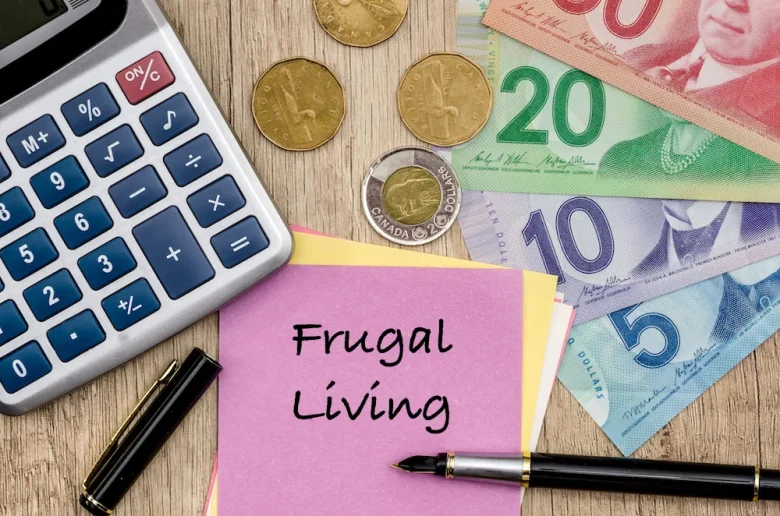Rising prices and economic uncertainty have transformed the concept of frugal living from a niche hobby to a common way to maintain financial stability. However, the term often evokes images of poverty, coupon clipping, and waste. The true meaning of modern frugality lies in empowerment: it’s not about spending less on everything but on the things that truly matter. This mindful approach to financial management can effectively align your spending with your values, eliminate waste, and accelerate your progress toward important financial goals, such as paying off debt or making a down payment.
This article not only offers simple tips but also explores practical and effective frugal lifestyles that can help you save money without sacrificing your quality of life. We explore how you can change your habits and mindset to help you save significant amounts over time. This strategy will transform your relationship with money from stress to control and freedom.
How to Change Your Mindset About Purposeful Spending:
Frugality doesn’t start with a budget; it starts with an attitude. To save money, you need to understand why you spend it. A clear understanding of your values is the first step toward purposeful spending. Think about what truly makes you happy and what gives you short-lived pleasure. For some, this means prioritising quality food and activities. For others, it might mean investing money or time in a hobby. This values-based tool helps you determine how much you spend. The goal is to quickly eliminate things that don’t align with your values so you can focus on those that do. It’s not about being stuck in a dilemma; it’s about creating a spending plan that maximises your happiness for every dollar you spend. This proactive approach can break the cycle of guilt and give you a sense of purpose and control over your money.
Conduct a Thorough Audit of Subscriptions and Recurring Expenses:
In this digital world, money often disappears in the form of small, automatic monthly payments. Recurring expenses like streaming services, app memberships, software licences, and subscriptions can add up to significant annual costs. The first step is a thorough audit. Please take a moment to review your credit card and bank statements from the past three months and compile a list of all your ongoing expenses. Be honest about how you’ll use each expense and how you’ll pay for it. Have you used this streaming service for a month? Is this paid app worth the money? Remove any unnecessary or rarely used services. For services you keep, consider cheaper advertised packages or share a family package with trusted family members or friends. Doing these tasks every three months can save you hundreds of euros, with virtually no effort and without changing your daily routine.
Use Smart Habits to Change Your Shopping Habits:
Supermarkets pose a significant threat to your financial savings efforts. But you don’t have to rely solely on rice and beans to save money. Plan your meals for the week using store ads and ingredients you already have in your pantry. It’s the best way to save time and money. By adopting this simple habit, you’ll easily prevent impulse buys and food waste. Always take a specific shopping list with you when you go to the store and stick to it.
For everyday items like spices, canned goods, and cheese, store brands are almost always just as good as name brands, but at a much lower price. Don’t forget the benefits of frozen fruits and vegetables either. They’re often healthier, cheaper, and less likely to spoil than fresh produce transported over long distances. Finally, paying with cash can help you set a strong mental spending limit and prevent you from adding more to your shopping cart than necessary.
Changing the Way People Entertain and Socialise on a Budget:
People often worry that frugal living leads to isolation and boredom. Such an assumption is a mistake. True frugality inspires you to discover new ways to entertain yourself. Don’t always suggest expensive restaurants and bars. Instead, suggest walks, dinners, game nights, or free community events like museum days or outdoor concerts. Look for special deals along the way, like happy hours or movie tickets. If you wish to enjoy entertainment at home, please consider whether multiple paid streaming services are truly necessary.
Consider switching every month rather than purchasing everything at once. Take advantage of your local library. They offer more than just books; you can also get free movies, music, magazines, and even tickets to nearby attractions. This approach to entertainment often leads to deeper connections and experiences and isn’t just a waste of money.
Adopt a DIY Mentality for Simple Repairs and Maintenance:
In our culture, we often hire others for simple tasks, which can cost us a lot of money in the long run. A simple DIY mentality is essential for frugal living. You don’t have to be an experienced mechanic or plumber, but mastering a few basic principles can save you a lot of money. Consider learning how to prepare a few simple, delicious meals yourself rather than ordering in food. Checking tyre pressure, changing the air filter, and even replacing windscreen wiper blades are simple tasks you can learn on YouTube and are much cheaper than going to a mechanic. Similarly, learning how to sew a tie or patch a small hole can make your clothes last longer. Every little DIY effort not only saves money but also builds self-confidence and self-reliance. This makes frugality a rewarding habit, not a punishment.
Conclusion:
A frugal lifestyle ultimately leads to financial independence and personal freedom. It’s a choice that prioritises long-term security and spending aligned with your values over short-term impulses and social pressures. The best way to live frugally isn’t to make a huge one-time sacrifice but to make small, lasting changes in your daily life. You can build a solid financial foundation by adopting a mindful mindset, accounting for recurring expenses, planning daily purchases, changing your entertainment habits, and taking control of your spending. This approach can help you reduce financial stress, increase savings, and experience the peace of mind that comes with controlling all your money. Done right, frugal living isn’t about scarcity but about abundance and purpose.
FAQs:
1. Is frugal living the same as living frugally?
Absolutely not. Frugality means spending as little as possible, regardless of the quality or results. By eliminating waste and maximising existing resources, you can spend money on things that matter more.
2. What’s the easiest and fastest way to start saving money?
Please review all unused contracts and proceed with their cancellation. This won’t take long, will save you money immediately, and you might not even notice they’re gone.
3. How can I save money and still meet with friends?
Consider shifting the focus of the conversation from spending money to spending time. Instead of going out for an expensive dinner, organise a potluck, attend a free event in your neighbourhood, go for a walk, or meet friends for coffee.
4. If I strive to be frugal, does that mean I never buy nice things?
Absolutely not. You can be frugal and still spend a lot on things that are important to you by cutting out the unimportant items. You can buy lovely things that you enjoy.
5. Do I really save money by being frugal?
Yes. Small savings on things like groceries, subscriptions, and regular events add up to significant savings in the long run, often hundreds of dollars a month that you can use to pay off debt or save for a goal.



